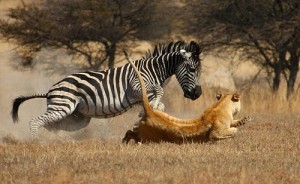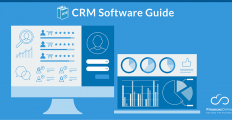
Source: heatheronhertravels.com
The lion is king only as far as the zebra allows it.
Before you fling a cleaver on us, we don’t mean juicing the life out of Mother Earth. Rather, let’s paint a general picture of how we behave around money as a group of sub-groups with each one having its own complex money habits. Surprisingly, we can reduce the economy in a simplest ecological model: predator vs. prey.
In a prey-predator world, the prey seems a hapless victim to the predator. But using a variation of the Lotka-Volterra model, an ecological framework that spells out the relationship outcomes between living organisms, the prey can have the upper hand. Instead of a zero-sum game of you-versus-me, the predator’s fate is interlocked with its prey; the carnivore must take care not to wipe out the prey, lest the predator loses the very food it eats.
Clearly, we are the predators preying on planet earth. But while the lion can follow its instinct to take down only the zebra for the day, we can’t. Our instincts have been glossed over by our greed for more zebras, which leads us to today’s usual suspects: severe weather peaks; dwindling resources; water shortages; melting polar caps; rising sea levels; flash floods; land over-use, and an endless stream of crises that are tied up to the capitalist way of living, particularly, yes, our personal finance.
How we spend or invest money generates a reverse chain reaction that impacts on the planet. But it doesn’t mean we become communists. According to Michael Rosenzweig, renowned ecologist and author, our capitalist whims and Mother Nature need not be adversaries. He calls it reconciliation energy, “how we can blend a rich natural world into the world of economic activity.” In short, we just need to resurrect our preying instinct to take what we only need and let nature renew itself.
As a predator, you have a set of teeth to bite hard on the environment’s enemies. Let’s check your expenses. When you realize that the bulk of your personal finance goes to spending, this is where you can create a collective impact. Do you buy disposables versus recyclables? Do you prefer organic over synthetic? Household items from shampoo bottles to plastic wraps can easily add to the garbage pileup that stresses land use and increases toxic waste. By buying green products, those that measure their production with least impact on the environment, you are being the model predator. Here are some more green ideas:
- Shift from centralized heat and air-conditioning to room conditioning
- Commute at least thrice a day to save on fuel
- Hang-dry clothes instead of running the dryer
- Buy re-usable products, such as, cloth diapers and towels, ceramic wares, refillable pens
- Visit a garage sale or flea market for recyclable but great finds
- Compost your organic trash
- Prioritize fuel-efficient cars
As for your investments, know where your money is funneled to. Buy real estate that doesn’t encroach on marshlands, mangrove coastlines or denude forests. Does your business investment support the government’s policy on renewable energy even if it means extra cost to shift to solar, wind and bio-fuels? Do you leverage stocks on businesses that put a premium on community-sourced raw materials, not out of charity, but more on the fact that helping the poor is good business (more consumers in the future!)? In fact, do you save so you can invest later in these businesses?
In the ecology of money, your personal finance matters. How serious you are to align your spending and investments will have a direct impact on sustaining the planet. Let’s prey on the environment not as marauders, but predators with the kill-only-when-needed instinct and leave the other zebras alone for tomorrow.























Leave a comment!